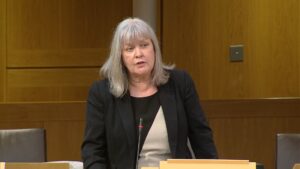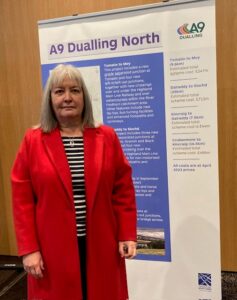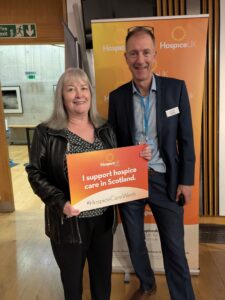Scottish Labour will push power out of Holyrood to usher in a new age of regional economic growth, Anas Sarwar has said.
Mr Sarwar’s intervention comes as he launches the Muscatelli Report – a report into regional economic growth written by renowned economist Professor Sir Anton Muscatelli.
In his report, Professor Muscatelli surveys the current state of the economy in Scotland, analyses Scotland’s challenges and opportunities, and produces recommendations to drive regional economic growth.
The report was commissioned by Scottish Labour to inform the policies that the party will develop in the run up to the 2026 Scottish Parliament election.
Mr Sarwar has criticised Scottish politics for being an ‘economics-free zone’ and has hit out at the SNP’s ‘Edinburgh-centric’ approach to economic policy.
Speaking to mark the launch of the report, Scottish Labour leader Anas Sarwar MSP said: “For two decades, Scottish politics has been an economics-free zone.
“We all want to see social change driven by proper policymaking, but the truth is that we cannot have the social policies we need if we do not have a thriving and growing economy.
“Under the SNP, economic growth has been ignored and the unique potential of communities across Scotland has been held back by an Edinburgh-centric view of the economy.
“If we are to meet the challenges of the future, we need a thriving and growing economy that works for every part of the country.
“That’s why Scottish Labour is determined to learn from experts like Professor Sir Anton Muscatelli to ensure we have a plan that is ready to deliver the growth and prosperity we need.
“As First Minister I will end the economics-free zone at Holyrood and push power out and into our communities to empower entrepreneurs and kickstart growth.”
Professor Sir Anton Muscatelli said: “I was commissioned by the Leader of the Scottish Labour Party to examine how Scotland might unlock the full potential of its regional economies.
“In conducting this work, I have done so entirely independently, drawing on evidence, consultation and international best practice to offer recommendations that I hope will be of value to all those with an interest in Scotland’s economic wellbeing.
“Scotland’s long-term prosperity depends on placing economic growth and productivity at the centre of public policy.
“This report highlights the need for greater coherence in policy design, stronger collaboration between Scotland’s governments and a renewed call for the levers that lie in Holyrood to be used to foster the distinctive strengths and mitigate challenges of our regional economies.
“Economic growth is not an end in itself, but the essential means by which we can raise living standards, sustain high-quality public services, and tackle persistent inequalities.
“My hope is that the findings set out here will help stimulate the focused, long-term approach to economic development that Scotland now urgently requires.”
A copy of Professor Muscatelli’s report can be accessed via link: http://scottishlabour.org.uk/wp-content/uploads/2025/11/Independent-Report-on-Regional-Economic-Development-in-Scotland.pdf
Anton Muscatelli is a Distinguished Honorary Professor of the Adam Smith Business School at the University of Glasgow




